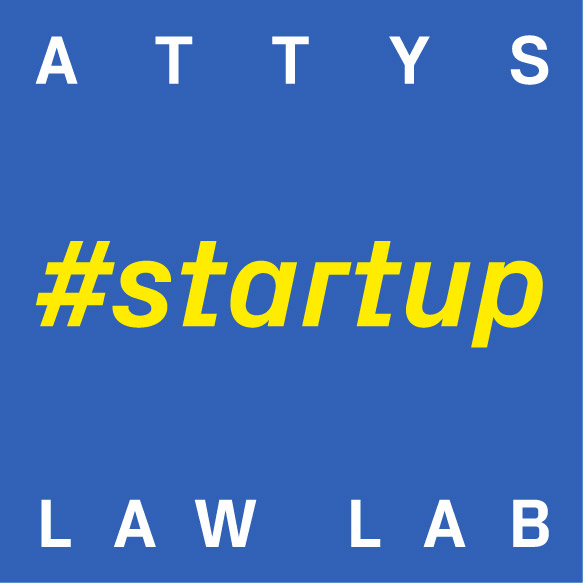Startup Law Lab. Volume III: ‘Artificial intelligence in international skilled labour recruitment’
On 20 November 2024, we hosted the third edition of our Startup Law Lab event series, focusing on a highly topical issue: artificial intelligence (AI) in international skilled labour recruitment.
The ongoing shortage of skilled workers is one of the most pressing challenges of our time. Artificial intelligence offers innovative approaches – from the automation of administrative processes to precise and efficient talent acquisition. At the same time, the use of AI in international skilled worker recruitment is caught between technological possibilities and legal challenges. This was a good reason for the founders of ATTYS to address this specific topic in their event series ‘Startup Law Lab’ and examine it in more detail. Together with experts and the Startup Service of the Austrian Federal Economic Chamber, represented by its head Kambis Kohansal-Vajargah, numerous guests were welcomed to discuss new approaches in the field of global talent acquisition.
Mag. Josef Brunner-Lochan (founder of M-Hub.ai) opened the evening with exciting insights into the development and functioning of his AI platform. M-Hub.ai specialises in the digitalisation and automation of processes in international recruitment and offers innovative solutions for recruiting skilled workers in the care and healthcare sectors. With AI-supported tools, the platform helps companies efficiently overcome challenges such as lengthy recognition procedures or complex visa applications.
Dr Christoph Ludvik (partner at ATTYS Rechtsanwälte) highlighted the legal framework surrounding the use of AI technologies in his keynote speech. The focus was on the new regulations of the AI Act, the requirements of the GDPR and the question of how AI can bring efficiency and innovation to the recruitment of skilled workers without losing sight of legal certainty. The aim of the keynote speech was to clarify legal uncertainties and provide companies with practical solutions.
Below is an overview from our ATTYS expert on the key aspects of artificial intelligence in international skilled labour recruitment:
Artificial intelligence and the global competition for talent
The global labour market is facing profound change. Skilled workers from third countries are becoming increasingly essential for many industries. AI systems support companies by automating processes such as document verification and recognition procedures, as well as candidate matching. At the same time, legal and ethical issues must be taken into account.
Legal guidelines: The AI Act and GDPR
With the AI Act, the EU is establishing clear rules for the use of AI systems for the first time. The starting point for the AI Act is the classification of the risk associated with the use of certain AI systems.
Transparency, non-discrimination and traceability are essential, particularly in the recruitment of skilled workers, which is considered a high-risk area. Companies must ensure that applicants are informed about the use of AI, that algorithms are free of bias and that decision-making processes are documented and remain verifiable. In addition, the GDPR regulates the protection of personal data. Sensitive information must be anonymised and protected from unauthorised access. Applicants also have the right to access and object to the data. These legal requirements necessitate the careful implementation and monitoring of AI systems. We support you in implementing these requirements in practice in a legally compliant manner.
Opportunities and challenges in practice
AI systems are revolutionising skilled worker recruitment through faster and more efficient processes. They enable automated qualification checks, optimise visa applications and improve placement between companies and candidates. However, it is crucial to minimise potential risks. Without regular monitoring, unconscious biases can creep into the algorithms. In addition, compliance with the legal requirements of the AI Act and the GDPR requires continuous adaptation. The quality of the data used also plays a key role: incorrect information can significantly impair the AI’s decision-making basis. With the right strategy and legal support, companies can reap the benefits of AI while avoiding legal and ethical risks.
Our recommendations for action at a glance
The following points are essential for companies that want to use AI in international skilled labour recruitment:
- Ensure AI transparency: Make sure applicants are informed about how and where AI is used.
- Ensure regulatory compliance: Integrate AI Act and GDPR requirements into your processes at an early stage.
- Minimise bias: Regularly review and optimise algorithms for potential discrimination.
- Make processes auditable: Document AI-supported decisions in a transparent manner.
- Strengthen data management: Only use high-quality, relevant data for AI analyses..
- Protect sensitive data: Implement strict data protection measures to prevent breaches.
- One last important point is the drafting of contracts with providers: clear contractual provisions with providers are essential in order to define liability in the event of system errors or data protection violations.
With the third edition of Startup Law Lab, we have demonstrated that AI is not only a technological challenge, but also a legal and ethical one. At the same time, it opens up enormous opportunities to combat the shortage of skilled workers in the long term.













